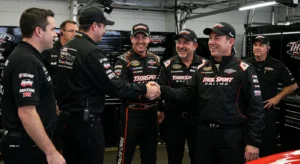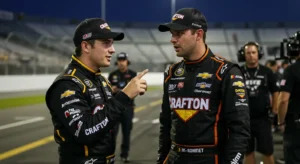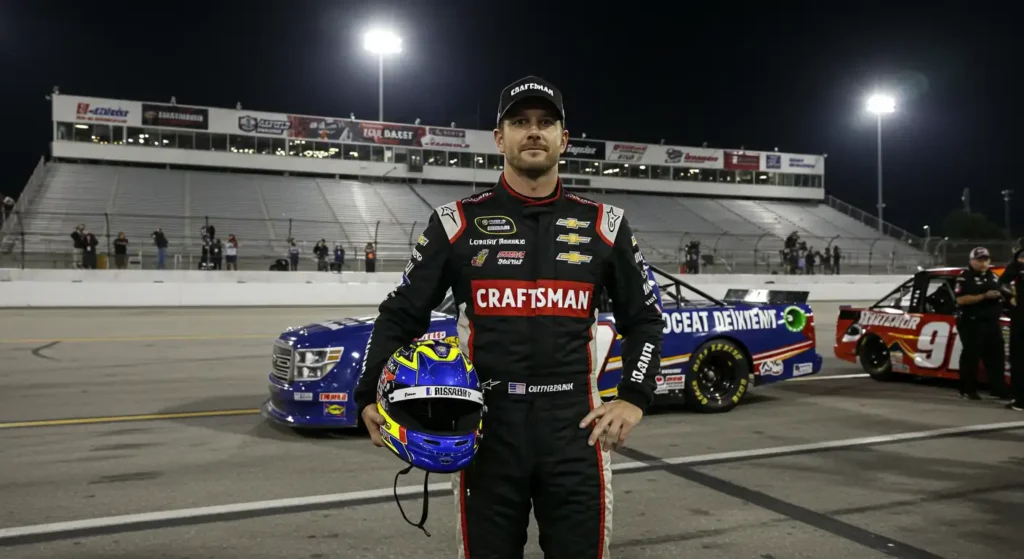When Matt Crafton announced that the 2025 season would be his final year in
the NASCAR Craftsman Truck Series, it marked the end of an era. With
three championships, hundreds of starts, and a reputation built on consistency
and perseverance, Crafton has become one of the most respected drivers in the garage.
His decision to retire after more than two decades in the sport creates an opportunity
for younger drivers — especially those from New England — to learn from his career and
apply his lessons on and off the track.
1) Consistency Beats Flash
Crafton’s legacy is not built on highlight-reel wins alone. Instead, he forged a
reputation for consistent top-ten finishes and championship-caliber
points racing. While other drivers chased risky moves, Crafton mastered the art of
finishing strong week after week. This approach rewarded him with three titles and
long-term stability.
For New England truck racers, the lesson is clear: flashy victories may capture
headlines, but it is consistency that sustains careers. Focus on finishing every
race, minimizing DNFs, and learning how to stay competitive even on off weekends.
2) Long-Term Partnerships Matter
 One of Crafton’s most overlooked achievements is his ability to maintain long-term
One of Crafton’s most overlooked achievements is his ability to maintain long-term
sponsorships and team relationships. Driving for ThorSport Racing for
nearly his entire career, Crafton benefited from a stable environment that allowed
his team to build chemistry, refine setups, and develop trust.
For regional drivers, this means treating sponsors and team owners as partners, not
stepping stones. Building strong local connections with New England businesses,
whether it’s a small-town auto shop or a regional dealership, can provide the
stability needed to grow season after season.
3) Adaptation is Key
Over 20+ seasons, NASCAR trucks evolved dramatically — from chassis updates to
aerodynamic shifts to competition formats. Crafton stayed relevant because he
adapted. He leaned into data analysis, new setups, and evolving driving
styles to remain competitive, even against younger talent.
For New England racers, adaptability might mean balancing between asphalt and dirt
tracks, learning to drive in mixed-weather conditions, or embracing modern tools like
simulators and telemetry. Check out our guide on
iRacing and telemetry for local drivers to learn how technology can be a
competitive advantage.
4) Mentorship Accelerates Growth
 Crafton has mentored younger teammates and competitors, emphasizing the importance
Crafton has mentored younger teammates and competitors, emphasizing the importance
of sharing knowledge. By passing on wisdom about tire management, restart strategy,
and race craft, he left a mark on the next generation.
In New England, veteran short-track racers play a similar role. Up-and-coming
drivers can benefit immensely from leaning on these veterans, asking questions about
line choice, brake points, or even off-track professionalism. Racing isn’t just about
speed — it’s about absorbing the wisdom of those who have been there before.
5) Legacy Extends Beyond Wins
Crafton’s career proves that a driver’s legacy is not defined solely by trophies.
It is also measured by longevity, respect in the garage, and the inspiration left for
others. For many younger racers, Crafton represents the possibility of a long,
sustainable career in motorsports — even without dominating every season.
New England truck drivers can draw inspiration from this mindset. Whether chasing
wins at tracks like Seekonk Speedway or Waterford Speedbowl, the
bigger picture is building a career defined by growth, professionalism, and influence
on the sport at large.
What New England Racers Can Take Away
So what can New England racers learn from Matt Crafton’s retirement?
- Focus on consistency: Aim for solid points days, even when
the car isn’t perfect. - Build sponsor trust: Long-term partners are worth more than
one-off deals. - Stay adaptable: Learn from changing track conditions and
embrace new tools. - Seek mentorship: Let veterans accelerate your learning curve.
- Think legacy: Aim to leave the sport better than you found it.
Looking Ahead: The Post-Crafton Era
With Crafton’s retirement, the Truck Series enters a new chapter. A gap opens not
only in the ThorSport lineup but also in the broader ecosystem of mentorship and
experience. Younger drivers will have the chance to step up and carry the torch,
shaping the next decade of competition.
For fans and drivers in New England, Crafton’s retirement is both a celebration of
a remarkable career and a reminder: the lessons of his journey apply just as much at
local short tracks as they do on NASCAR’s biggest stages.
Further Reading
- How Weather Affects Truck Racing Performance
- Lime Rock Park’s LiUNA! 150 Recap
- Multi-Division Events Fueling Regional Growth
For official news and updates, visit the
NASCAR Craftsman Truck Series News Hub.

